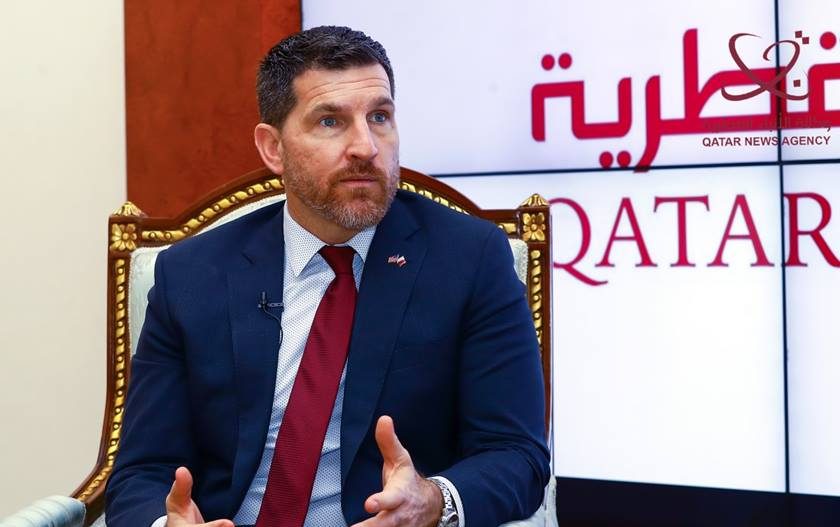Last year, Qatar’s GDP saw a 4.3% growth in the third quarter in comparison to a 6.3% spike in the previous three-month period.
Qatar’s economy will “withstand any expected recession in the west” amid concerns over a potential economic slump, a top US official said on Saturday.
Speaking to Doha’s state news agency (QNA), Scott Taylor, President of the US-Qatari Business Council (USQBC), noted that the current energy prices as well as the Gulf state’s “dynamic economy” contribute to its strengths. Both factors, Taylor said, help Qatar defy the economic challenges even if they spill over from the west to the rest of the world.
Taylor described Qatar’s liquified natural gas (LNG) expansion as “a massive driver of the economy” both for Doha and its business ties with Washington.
“We obviously have American companies who are participating in the expansion. So that’s one thing. You’re also going to have human talent bringing expertise and bringing folks in as got the pivots from not just construction and infrastructure,” Taylor told QNA.
Over the past year, Qatar has taken centre stage in energy talks as Europe scrambled to secure its gas supply in an effort to abandon its reliance on Russia.
The region previously received 40% of its gas supplies from Russia as almost a third of shipments passed through Ukraine.
In November, Germany signed a 15-year LNG agreement with Qatar, with flows expected to kick start in 2026.
Hungary, among the countries that heavily rely on Russian oil and gas, later announced that talks would take place with Qatar over LNG supply.
Commenting on investment opportunities, Taylor said that investors will be able to profit through low-cost deals in the long-run in the event that the world gets out of the potential recession.
Tapping into the 2022 FIFA World Cup, which has largely contributed to the country’s economy, Taylor noted that “there are a lot of lessons” upcoming host countries Mexico, Canada, and the US can learn from the Gulf state.
“I think one of the biggest things that we can learn from Qatar is the fact that you illustrated and showcased your culture so well surrounding the World Cup and we could certainly learn from you and learn from that and those conversations are ongoing,” he said.
Taylor’s reassuring remarks on the economy came amid a bleak view offered by the International Monetary Fund (IMF) at the beginning of the year.
The IMF’s Managing Director Kristalina Georgieva had warned that the potential recession would hit “one-third of the world economy”.
Explaining this year’s economic forecast, the IMF official said the reason behind the prediction is due to the simultaneous slowdown of the world’s three big economies – the US, the European Union and China.
Speaking to Doha News last month, economists said Qatar’s economy will continue to expand “at a healthy pace” despite a potentially slow GDP growth.
“Qatar’s economy will continue to expand at a healthy pace, although real GDP growth will slow from about 5.5% in 2022 to about 3.7% in 2023,” Adnane Allouaji, GCC economist, told Doha News last month.
Allouaji explained that Qatar benefitted last year from the hydrocarbons sector activity, most notably the LNG trade and investment.
“Qatar will embark on an intense period of negotiations with international LNG clients in 2023 with the aim of securing long-term fixed contracts for its existing and future expanded LNG production,” Allouaji said.
According to the IMF, Qatar’s GDP is projected to grow at 2.4% this year. Last year, Qatar’s GDP saw a 4.3% growth in the third quarter in comparison to a 6.3% spike in the previous three-month period.
Qatar also ranked first among 50 of the world’s top destinations for foreign direct investment (FDI).
Doha’s FDI recorded a 70% annual growth between 2019 and 2022, with a possible 2.4% increase in 2023, with inflation not expected to surpass 3.3%.







